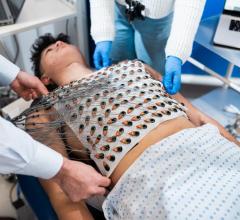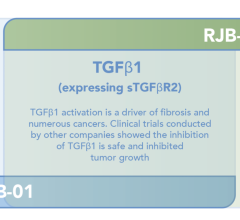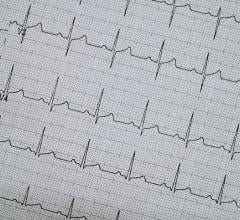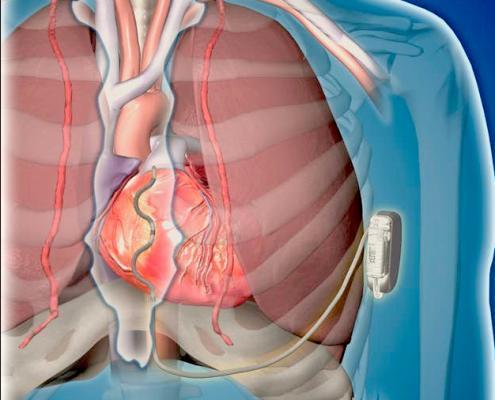
February 17, 2023 — Medtronic plc has received CE (Conformité Européenne) Mark for the Aurora EV-ICD MRI SureScan (Extravascular Implantable Cardioverter-Defibrillator) and Epsila EV MRI SureScan defibrillation lead to treat dangerously fast heart rhythms that can lead to sudden cardiac arrest. The Aurora EV-ICD system provides the life-saving benefits of traditional ICDs while avoiding certain risks because its lead (thin wire) is placed outside the heart and veins. The Aurora EV-ICD system is investigational in the United States.
Patients implanted with the Aurora EV-ICD system have defibrillation, anti-tachycardia pacing (ATP), and back-up pacing therapies available to them via a single implanted device that is similar in size, shape, and longevity to traditional ICDs. The system approval also includes proprietary procedure implant tools. The Aurora EV-ICD system is expected to be commercially available in autumn 2023 in select countries in Europe.
ICDs are highly effective in providing life-saving therapy for patients at risk of sudden cardiac arrest (SCA), an electrical problem with the heart stemming from a dangerously fast heart rate (ventricular tachycardia or ventricular fibrillation). If not treated immediately, SCA can be fatal. Traditional, transvenous ICDs are implanted in the chest and attached to leads that are threaded through the veins into the heart to sense the heart's electrical signals and deliver therapy to terminate a potentially fatal arrhythmia, restoring the heart's normal rhythm.
The Aurora EV-ICD is implanted below the left armpit (in the left mid-axillary region) and the Epsila EV lead is placed under the breastbone (sternum) using a minimally invasive approach. Placing the lead outside of the heart and veins is designed to help avoid long-term complications that may be associated with transvenous leads, such as vessel occlusion (narrowing, blockage or compression of a vein) and risks for blood infections.
CE Mark approval follows the Extravascular Implantable Cardioverter Defibrillator (EV ICD) Pivotal Study meeting its safety and effectiveness endpoints;1 data was presented as late breaking science at the European Society of Cardiology (ESC) 2022 and simultaneously published in The New England Journal of Medicine.
In the global pivotal study, the device's effectiveness in delivering defibrillation therapy at implant was 98.7%. This reflects a greater defibrillation efficacy for the EV-ICD than historical transvenous ICD studies,122-5 and comparable efficacy to the subcutaneous ICD despite EV-ICD's smaller device size.6 Further, the efficacy of ATP – which paces the heart to interrupt and terminate a dangerous rhythm, potentially avoiding a defibrillation shock – in the EV ICD study was comparable to ATP efficacy in transvenous defibrillators.7,8 In total, 33 shocks were avoided by having ATP programmed "on."
Additionally, at six months, 92.6% of patients (Kaplan-Meier estimate) in the pivotal study were free from major system and/or procedure-related major complications such as hospitalization, system revision, or death. There were no major intraprocedural complications, nor any unique complications observed related to the EV-ICD procedure or system.
"The growing awareness by patients and physicians about the risks that come with placing leads in the heart or veins is addressed by the Aurora EV-ICD system that provides an extravascular solution while maintaining the traditional ICD benefits of pacing and defibrillation therapy," said Lucas V.A. Boersma, M.D., Ph.D., cardiologist at St. Antonius Hospital, Department of Cardiology, Nieuwegein, The Netherlands, and Professor of Cardiology, Amsterdam University Medical Centers, University of Amsterdam, The Netherlands.
The Aurora EV-ICD system includes features available in Medtronic transvenous ICDs, and offers additional advantages that are not available with subcutaneous ICDs including:
- Anti-tachycardia Pacing (ATP), which terminates ventricular arrhythmias (rapid and/or chaotic activity of the heart that can cause SCA episodes)
- Pause Prevention Pacing, which provides back-up pacing for brief, intermittent, heartbeat pauses
- 40 Joule Defibrillation Energy, which delivers life-saving shocks in a device the size of transvenous ICDs (33 cc)
- Medtronic exclusive PhysioCurve design, which may offer increased patient comfort and acceptance
Up to 11.7-year projected longevity (a predicted increase compared to the subcutaneous ICD), potentially leading to fewer device replacement procedures during a patient's lifetime
"We are proud to be the first company to offer a complete one-system, one-procedure extravascular ICD solution, which maintains the patient benefits of traditional, transvenous ICDs without the risk of leads in the heart and vasculature," said Alan Cheng, M.D., chief medical officer of the Cardiac Rhythm Management business, which is part of the Cardiovascular Portfolio at Medtronic. "This approval is a significant milestone in achieving our goal of delivering a defibrillation solution that treats sudden cardiac arrest while improving the patient experience."
The Aurora EV-ICD system is indicated for patients who are at risk of life-threatening arrhythmias, and who have not had a prior sternotomy and do not need chronic bradycardia (abnormally slow heartbeat) pacing.
For more information: www.medtronic.com
References:
1 Friedman P, Murgatroyd F, Boersma LVA, et al. Efficacy and Safety of an Extravascular Implantable Cardioverter-Defibrillator. N Engl J Med 2022; 387:1292-1302.
2 Leong-Sit P, Gula LJ, Diamantouros P, et al. Effect of defibrillation testing on management during implantable cardioverter-defibrillator implantation. Am Heart J 2006;152:1104-8.
3 Pires LA, Johnson KM. Intraoperative testing of the implantable cardioverter-defibrillator: how much is enough? J Cardiovasc Electrophysiol 2006;17:140-5.
4 Michowitz Y, Lellouche N, Contractor T, et al. Defibrillation threshold testing fails to show clinical benefit during long-term follow-up of patients undergoing cardiac resynchronization therapy defibrillator implantation. Europace 2011;13:683-8.
5 Healey JS, Hohnloser SH, Glikson M, et al. Cardioverter defibrillator implantation without induction of ventricular fibrillation: a single-blind, non-inferiority, randomised controlled trial (SIMPLE). Lancet 2015;385:785-91.
6 Weiss R, Knight BP, Gold MR, et al. Safety and efficacy of a totally subcutaneous implantable-cardioverter defibrillator. Circulation 2013;128:944-53.
6 Gasparini M, Lunati MG, Proclemer A, et al. Long Detection Programming in Single-Chamber Defibrillators Reduces Unnecessary Therapies and Mortality: The ADVANCE III Trial. JACC Clin Electrophysiol 2017;3:1275-82.
7 Moss AJ, Schuger C, Beck CA, et al. Reduction in inappropriate therapy and mortality through ICD programming. N Engl J Med 2012;367:2275-83.

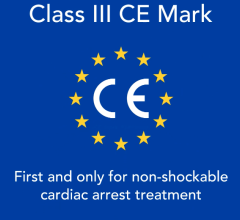
 September 09, 2025
September 09, 2025 


